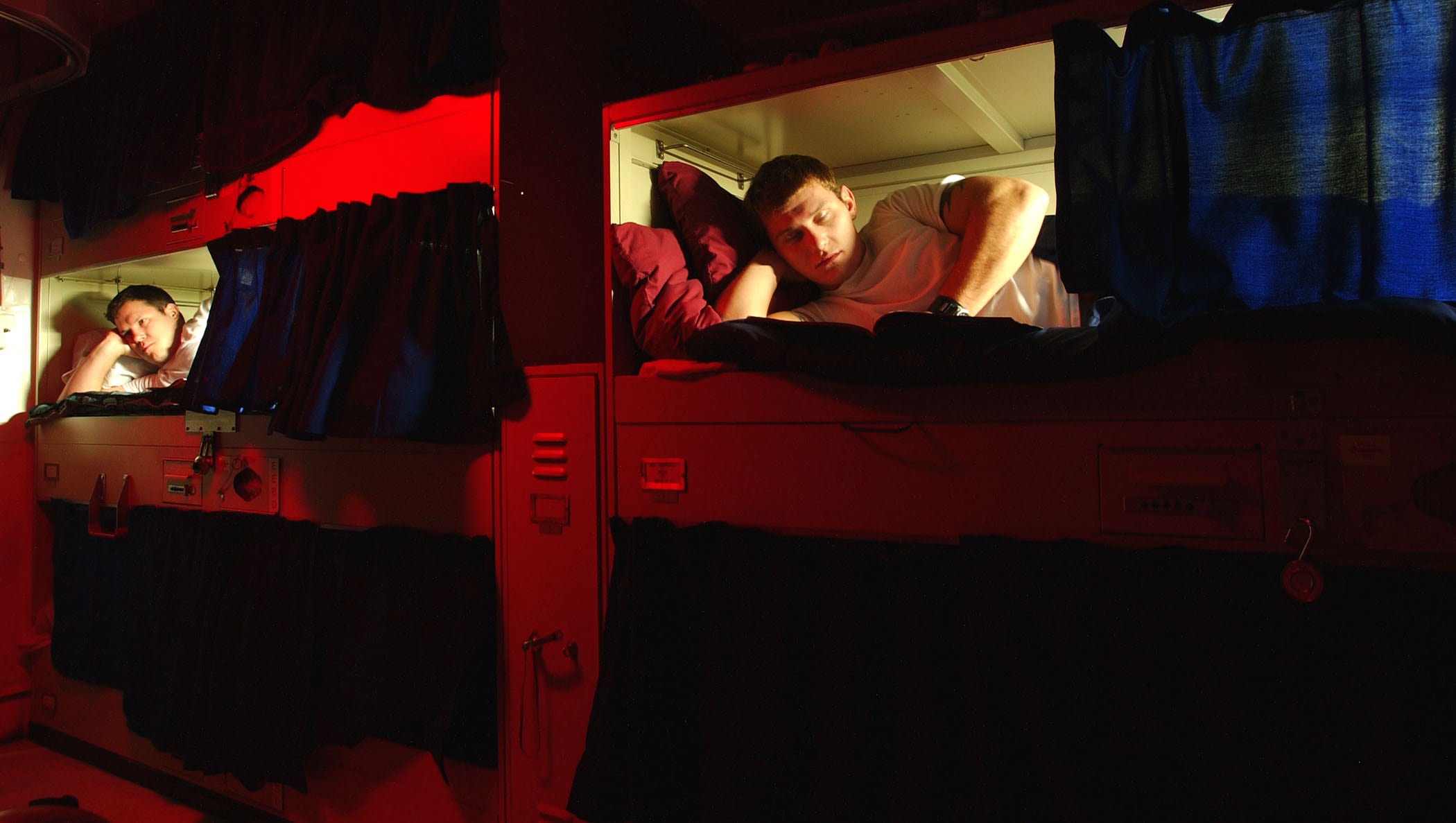Nearly four years after two fatal ship collisions that were later found to have been exacerbated by crew exhaustion, the U.S. Navy is still struggling to get its surface fleet sailors adequate rest, according to a Government Accountability Office report released last week.
“The surface fleet has inconsistently implemented the Navy’s fatigue management policy and sailors are not receiving adequate sleep,” the report warns.
A lack of sleep isn’t just a quality-of-life issue. The Navy’s own studies have found that sailors’ ability to safely do their jobs lessens with less rest, and that lack of consistent sleep can lead to a sort of on-duty drunken stupor.
“Sailor fatigue poses a considerable risk to the safe and effective operation of Navy ships,” the GAO report states.
While Big Navy has pushed circadian rhythm watch bills as a way to ensure crews are getting regular rest, the GAO report found such schedules have not gotten sailors the sleep they need.
Part of the GAO’s two-year assessment, which ended earlier this year, surveyed surface warfare officers about sleep on their ships.
RELATED

It found that 84 percent believed that fatigue often or sometimes affected ship operations.
“One officer in our survey responded that they had observed other officers degrade to near senselessness while attempting to safely navigate a ship — of leadership’s disregard of sleep requirements,” the report states.
Fatigue was cited as a factor in the June 2017 collision of the destroyer Fitzgerald that killed seven crew members, as well as the destroyer John S. McCain’s collision two months later with a Liberian-flagged tanker off the coast of Singapore that killed another 10 shipmates, prompting high-level Navy probes and congressional scrutiny.
But while the Navy has since rolled out things like circadian rhythm watch schedules, the GAO found that the service is still failing to ensure that sailors get seven-and-a-half hours of sleep a day.
A 2020 GAO survey of surface warfare officers found that 67 percent reported sleeping five hours or less a day.
That survey included SWOs who had been to sea in the past year and stood watch as officer of the deck, tactical action officer or engineering officer of the watch.
The GAO noted the Navy’s steps to get more information on fatigue in the surface fleet but added that the sea service is still not “measuring and managing fatigue in a timely manner,” which hinders the ability of ship captains and other leaders to move on the issue faster.
The Navy issued a fatigue management policy in 2017, but the GAO found it was “inconsistently implemented.”
Late last year, the Navy issued updated guidance requiring commanders to ensure their crews are getting a required minimum of rest and have included questions in command climate surveys about fatigue, according to GAO.
RELATED

“These questions ask about the degree to which workload and environmental factors, among others, affect a sailor’s ability to sleep, and about the average amount of time sailors spend on different activities while awake,” the report states. “However, this Navy survey does not collect information about all causative factors that lead to fatigue and inadequate sleep, such as crew shortfalls, administrative and training requirements and collateral duties.”
Other Navy efforts underway include pilot programs where sailor sleep data is collected via a wrist-worn tracker, the GAO report states.
Without systemic and timely sleep data, the Navy won’t be able to meaningfully measure fatigue, the GAO warns.
And without measurements and an understanding of the causes, the Navy will perpetuate “the risks of operating with fatigued crews.”
The Navy concurred, without comment, on nearly all of the recommendations in the GAO report, including a more systemic approach to collecting sailor fatigue data and helping commands that are struggling to get their sailors adequate rest.
Geoff is the managing editor of Military Times, but he still loves writing stories. He covered Iraq and Afghanistan extensively and was a reporter at the Chicago Tribune. He welcomes any and all kinds of tips at geoffz@militarytimes.com.




